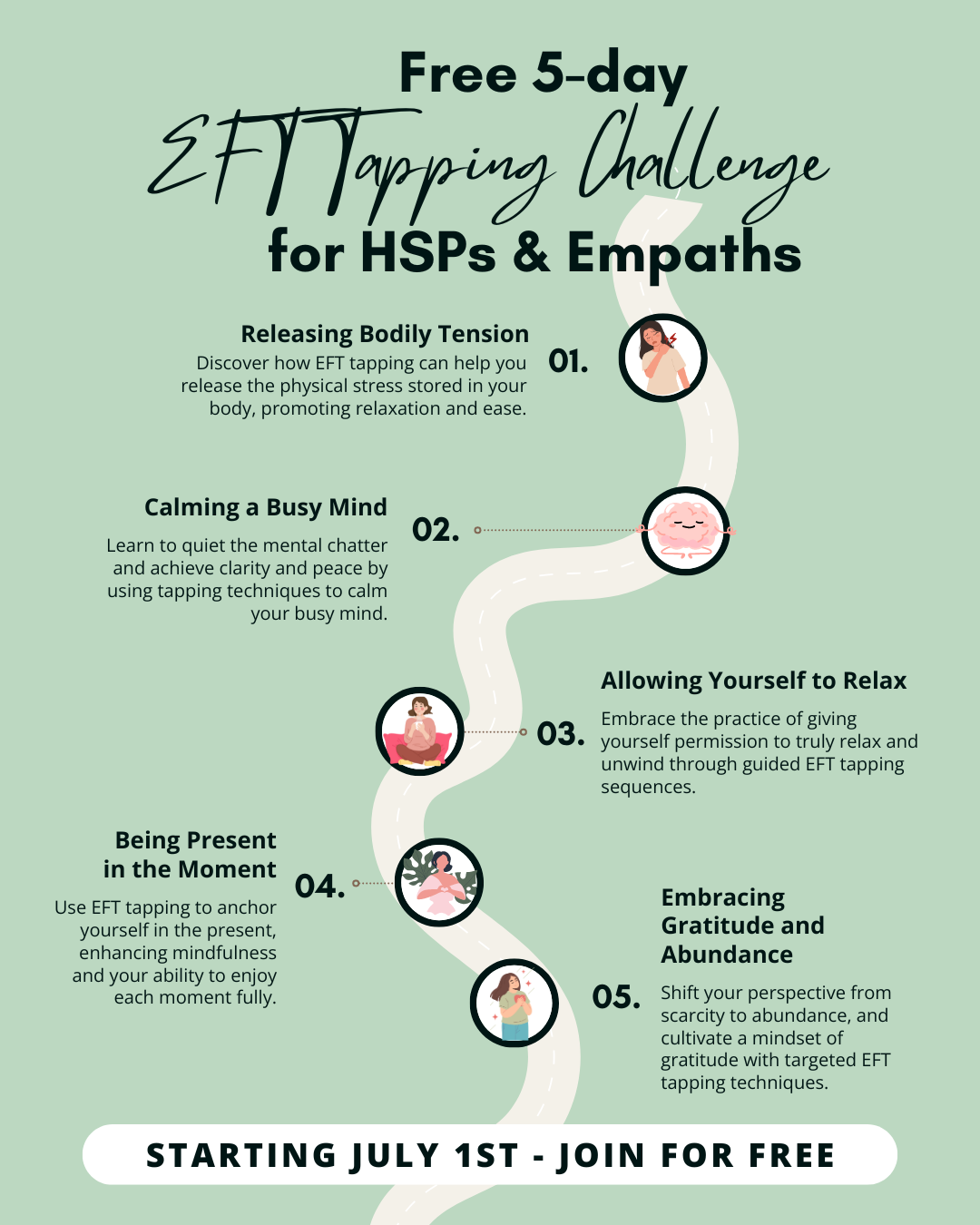Are you on a journey towards healing generational trauma and wondering how spirituality can help you? Discover valuable tips in this blog.
Hey there, lovely readers! We want to be completely transparent with you. Some of the links in this blog are affiliate links, which means if you click on them and make a purchase, we may earn a small commission at no additional cost to you. 😊
We only recommend products and services we genuinely believe in and have personally used or researched. Your support through these links helps us keep bringing you valuable content, so thank you for being amazing!
Estimated reading time: 8 minutes
Generational trauma, a silent thread woven through the fabric of our families, shapes us in ways we’re only beginning to understand. It’s a legacy of pain, patterns, and resilience passed down, often unconsciously, from one generation to the next.
However, a shift is happening. Millennials and Gen Z, armed with greater access to therapy and mental health resources than their predecessors, are lighting the torch of awareness, vowing to illuminate and heal these deep-seated wounds.
This journey, while daunting, promises liberation—not just for ourselves but for the generations that follow. It’s a path of breaking cycles, fostering healing, and paving the way for a future unburdened by the past’s shadows.
Here’s What You’ll Discover:
What is Generational Trauma?
Generational trauma encapsulates the emotional and psychological scars inherited from our ancestors’ experiences. Scars that often go unrecognized and untreated, festering through family lines. It manifests in myriad ways: from the way we react to stress, to our relationship patterns, to our deepest fears and insecurities.
As millennials and Gen Z delve deeper into their mental health, they’re uncovering these hidden traumas, piecing together the mosaic of their identity with a newfound understanding and empathy. Acknowledging this trauma is the first step toward healing. It requires us to confront painful truths and challenging us to grow beyond them.
The Challenges of Healing Generational Trauma
Embarking on the journey to heal generational trauma is no small feat. It demands courage to face the skeletons in our family’s closet, resilience to navigate the emotional upheaval, and patience to see the healing process through. This path can often feel lonely, as it may lack precedent within our families, leaving us without a roadmap.
The solitude of this journey underscores its importance. Breaking free from generational cycles of pain is a solitary but noble quest. Yet, the promise of healing, of not passing these burdens onto future generations, fuels our determination. It’s a profound commitment to healing not just ourselves, but the lineage we belong to and the descendants we’ll one day leave behind.
The Role of Spirituality in Healing
In the quest to mend the wounds of generational trauma, spirituality emerges as a beacon of hope and transformation. It offers a refuge, a space where healing can occur beyond the confines of traditional therapy or counseling.
Spirituality—distinct from organized religion—invites us to connect with something greater than ourselves. Moreover, it fosters a sense of belonging to the vast web of existence. It’s in this connection that we find strength, comfort, and insight, guiding us through the dark corridors of our inherited pain.
Spirituality equips us with tools like meditation, mindfulness, and prayer. This not only soothes our troubled minds but also rewires our responses to trauma, facilitating deep, lasting healing.
Creating a Spiritual Practice for Healing
Developing a spiritual practice is akin to planting a garden within your soul, where every ritual, every moment of mindfulness, is a seed of peace and self-compassion. For those navigating the rough waters of generational trauma, these spirituality practices are not just routines but lifelines. They anchor us in the present, offering respite from the storms inherited from our pasts.
Begin by exploring meditation, a practice that allows you to observe your thoughts and emotions without judgment, creating a space between your experience and your reaction to it. Incorporate journaling as a ritual to give voice to your innermost thoughts and feelings. This facilitates a process of self-discovery and reflection.
Yoga, with its emphasis on breath and movement, can serve as a powerful tool to reconnect with your body. Your body is often the silent bearer of generational pain. Establishing these practices requires patience and persistence. Start small, dedicating a few minutes each day to this sacred time with yourself. Then gradually build as you become more attuned to your spiritual needs.
The key is consistency; like watering a garden, your spiritual practice needs regular attention to flourish. Remember, this journey is deeply personal. Your practice should reflect your unique path to healing, tailored to nurture your spirit and soothe the wounds carried across generations.

The Power of Community and Shared Healing
Healing generational trauma is a monumental task, one that can feel isolating at times. Yet, there’s profound strength in community—in sharing your journey with those who understand the weight of the past and the hope for the future. Seek out spaces and groups that resonate with your spiritual path. Whether they are meditation circles, healing workshops, or online forums dedicated to generational healing. These communities offer not just support but also collective wisdom, providing diverse perspectives and insights that can enrich your own healing process.
Engaging in shared rituals or healing practices can amplify the transformative power of your work. Consequently, this creates a collective energy that uplifts each member. Be open to the stories of others, for in them, you may find mirrors of your own experience, further illuminating your path to healing. However, ensure these spaces feel safe and align with your journey. Your healing community should be a source of comfort and empowerment. Also, it should be encouraging your growth without overwhelming your spirit.
If you’re looking for a community, make sure to check out our Ideal Self Membership. This is a personal growth membership for highly sensitive people and empaths. Here, we collectively focus on personal growth together with certified experts. Each month, we delve into relevant personal growth topics that encourage you to live life like your ideal self would.
Through expert masterclasses, extensive e-books, practical worksheet printables, daily exercises and of course a community of like-minded people, you take your personal growth- and healing journey to a new level!
Integrating Spirituality into Everyday Life
The true essence of a spiritual practice lies not only in designated rituals but also in weaving this awareness into the fabric of your daily life. It’s about seeing the sacred in the mundane, recognizing moments of grace in everyday occurrences. This could mean practicing mindfulness as you perform daily tasks. This allows yourself to fully engage with the present moment, whether you’re washing dishes or walking to work. Moreover, it’s about greeting each day with gratitude, acknowledging the beauty of existence despite its trials.
To integrate spirituality more deeply, set small, intentional rituals throughout your day. Morning affirmations, a brief midday meditation, or an evening gratitude journal can serve as touchstones. Consequently, this brings you back to your spiritual center. It’s also beneficial to create spaces within your home that remind you of your spiritual journey. For instance, create a small altar or a dedicated meditation corner, that serve as visual cues to pause and connect with your inner self.
Incorporating these practices into your daily life fosters a continuous connection to your spiritual self. Moreover, they make resilience and peace more accessible, regardless of external circumstances. It transforms spirituality from an isolated practice into a living, breathing aspect of your existence. One that nurtures and supports you as you navigate the complexities of healing generational trauma.

Final Remarks
Healing generational trauma is a profound and challenging journey. It is a journey that requires courage, persistence, and a deep commitment to self-discovery and transformation. By turning to spirituality whilst healing generational trauma, we equip ourselves with tools that not only aid in our healing but also enrich our lives with greater meaning and connection. Creating a spiritual practice, seeking community support, and integrating these principles into our daily lives can revolutionize the way we approach our healing journey.
As we undertake this work, we do so not only for ourselves but for the generations that came before us and those that will follow. Each step toward healing is a step toward breaking cycles of pain. Moreover, this opens the possibility for a future defined by wellness, understanding, and resilience. This journey is a testament to the strength of the human spirit and the transformative power of love and healing.
Let’s Connect!
If you’re on a journey of healing generational trauma, know that you’re not alone. Share your experiences, insights, or questions in the comments below. Let’s create a supportive community where we can learn from each other, share our struggles and triumphs, and collectively move toward healing and wholeness. Your story has the power to inspire and heal, not just yourself, but also those around you and the generations to come.
You May Also Enjoy Reading These Articles
Disclaimer: In this article, we collaborated with AI while writing articles, meaning that we used it as a personal assistant to provide valuable information to our readers. The personal touch through stories and personal examples and the editing of the article have been performed by the author.








